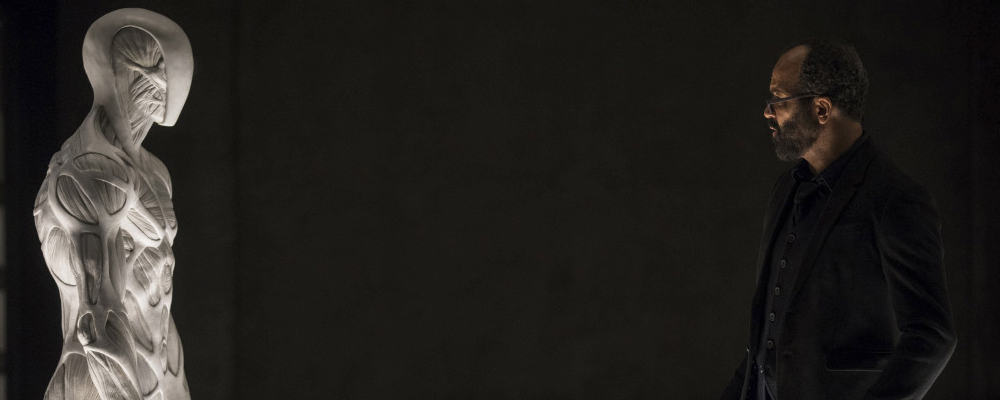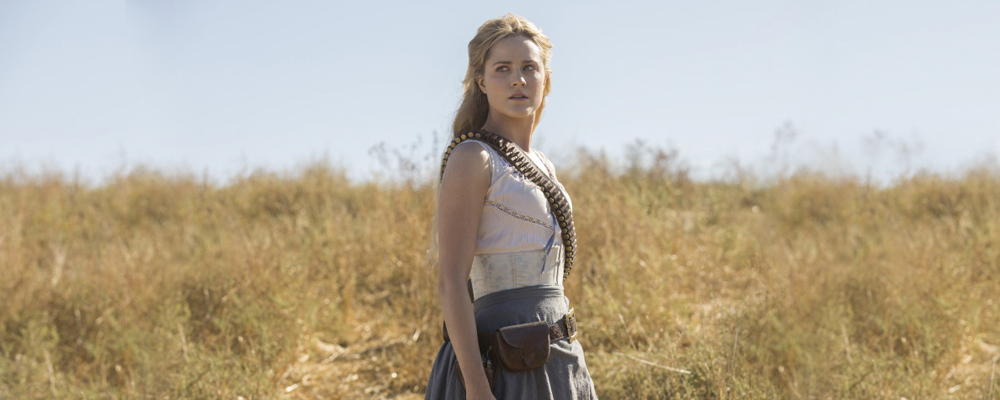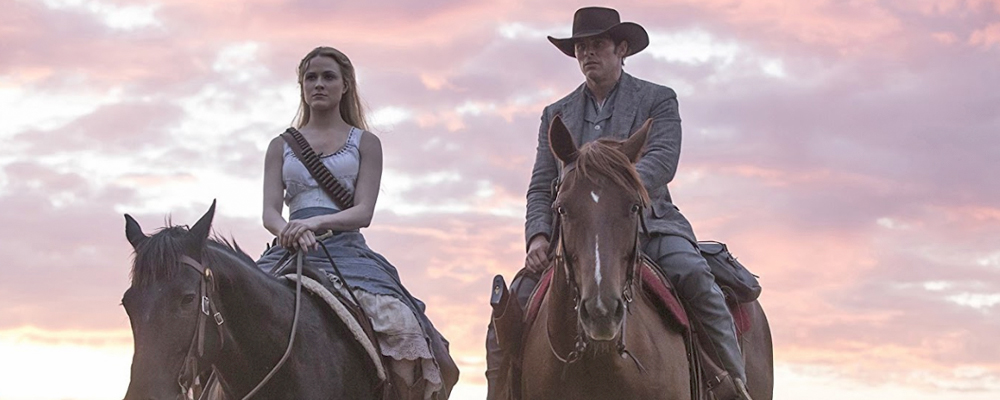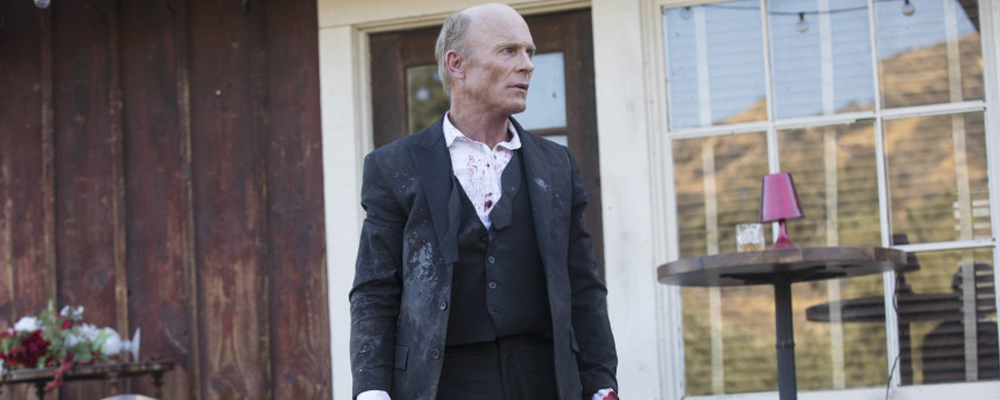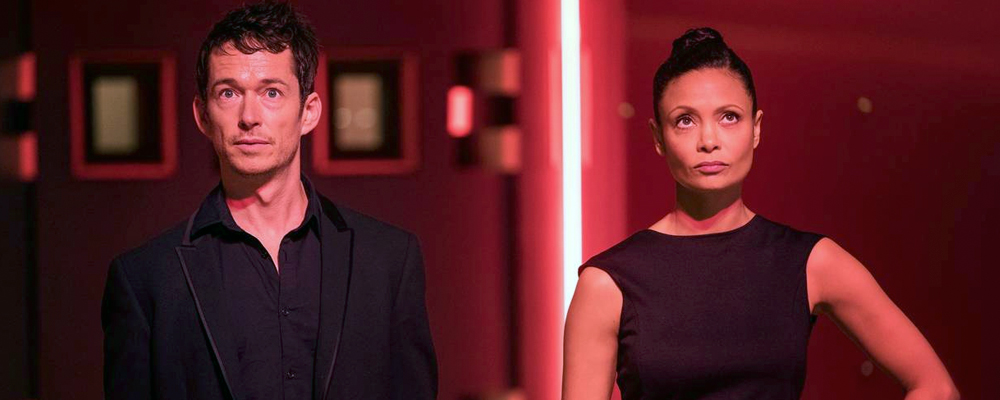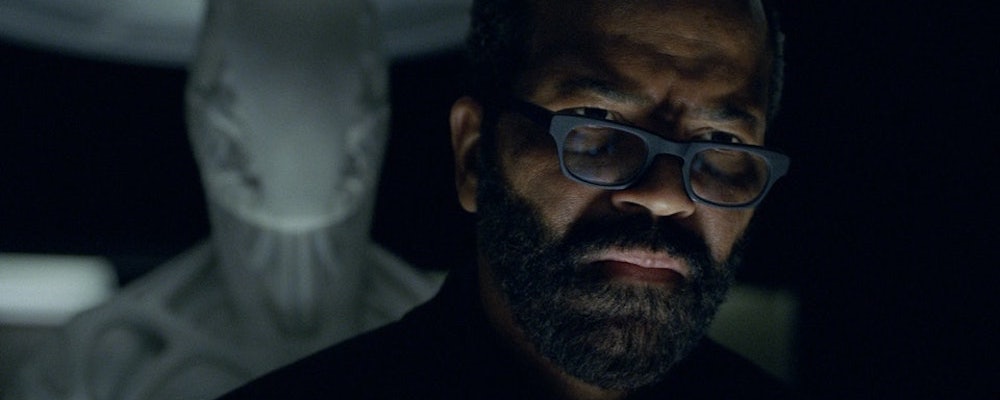‘Westworld’ Season 2 Finds the Hosts Running the Show
Alci Rengifo
Bloody reckoning opens the second season of HBO’s “Westworld.” Rebellion now stalks the decadent theme park as the Hosts have discovered consciousness and the humans have to scour to control the situation. In the season premiere the show enters a different sort of dystopia. The slick, totalitarian orderliness of the first season now gives way to total chaos. But while the terrain is different, the season opener reveals that the series retains all that was original, engaging and intense about its predecessor. The narrative is evolving and getting deeper, it’s a ride not to miss.
“Westworld” now finds itself in disarray after the “hosts” discovered “the Maze” in the season one finale and went on a rampage, killing several guests and Dr. Robert Ford (Anthony Hopkins), who intentionally bequeathed to his creations the ability to liberate themselves. As season two opens Dolores Abernathy (Evan Rachel Wood) and Teddy Flood (James Marsden) ride around with other hosts executing human guests they find seeking to escape the park. For Dolores the violence is a form of harsh retribution for years of slavery. Meanwhile rebel host Maeve Millay (Thandie Newton) remains armed at the main laboratory with captured park Narrative author Lee Sizemore (Simon Quarterman), who she demands lead her to find her long-lost daughter from a previous storyline her host character lived out. But the situation is bound to get bloodier as armed security forces arrive from the mainland, capturing a dazed Bernard Lowe (Jeffrey Wright), the park’s behavior and programming specialist. Lowe has been on the run with other survivors. Lowe’s memories are scattered and he struggles to piece together what’s going on. William, or the Man in Black (Ed Harris), has also survived the carnage and will now initiate a new quest. Instead of finding the Maze, William now realizes the next key piece of “Westworld” to uncover is a gateway called “The Door.”
“Westworld” is both an immersive experience in what modern television can do and a throwback to earlier forms of science fiction. Creators Jonathan Nolan and Lisa Joy took inspiration from a 1973 film directed by Michael Crichton and expanded its idea into a darker, more philosophical take on humans playing God. In the tradition of “The Island of Dr. Moreau” or “Jurassic Park,” the premise is a classic warning of what happens when humans combine hubris with technology. In season two what we get is the scorched aftermath. The opening scenes are full of almost revolutionary violence, as Dolores and her fellow hosts capture tuxedo-clad guests and tie nooses around their necks. The saloon piano plays a happy melody as Dolores rides her horse, taking aim and shooting down a fleeing victim. Maeve also takes no prisoners, except for Sizemore. Her lines are written with eloquence as she ponders why she can’t be considered an individual of value. She is a machine, but a being as well. If the first season was a dark parable of societies under the thumb of puppet masters, season two opens as a warning about what happens when the masses fight back. Dolores stares into a captive and exclaims, “For years I had no dreams of my own. I moved from a hell to hell of your making, never questioning the nature of my reality.” Because Nolan and Joy have crafted an apolitical series which poses challenging moral questions, watching “Westworld” is both entertaining but also intellectually stimulating. Provocative sci-fi imagines fantasy worlds which are actually mirror images of our own.
Along with the sharp writing, the new season also brings back the cryptic puzzles and visual reveries that make this world so vivid. Host membranes are cut open to find their stored memories, Lewis is guided into an unground compound where hosts without faces carry out tasks, and classic western panoramas are combined with high-tech sci-fi. The script by Lisa Joy and Robert Patino plays around with perceptions of time and reality. The opening of the episode might turn out to be the end, and when we find Lowe hiding with fellow “Westworld” exectuve Charlotte Hale (Teesa Thompson), we are not sure exactly if it’s a flashback or in real time. This is part of the fun of the series, because in the same way we don’t know who is a host or not, we can’t always be sure of when the narrative itself is being honest. An early scene where Lewis is found washed ashore on a beach by security forces, his mind a haze, might even be an homage to the reality-bending film “Inception,” written and directed by Nolan’s famous brother Christopher.
Fans hoping for some definitive or quick answers to lingering questions will find none in the season premiere. This show is designed to keep pulling you down the rabbit hole. It’s part of its immersive experience. What we do get is an idea of how the characters will evolve. Lewis is now at the forefront following Dr. Ford’s death, Maeve has fully transformed into a lead on a quest, and Dolores is now a sweet-eyed guerrilla. It will be interesting to see how the character of Sizemore develops, now that he has been yanked from his comfortable spot as a mere writer of the park’s narratives. But the ending itself is such a brain tease that nothing is for certain.
“Westworld” returns expanding its palette with new puzzles and raised stakes. As the season progresses it promises to reveal an even wider panorama, including new worlds, such as the Japanese-themed one hinted at in the first season’s finale. The hunt for “The Door” will no doubt lead the way to a grander vision promising bigger thrills. But one key element “Westworld” is sure not to change is its intelligence, which is what elevates “Westworld” above just another tale about futuristic vacation spots running amok.
“Westworld” Season 2 premieres April 22 and airs Sundays at 9 p.m. ET on HBO.

